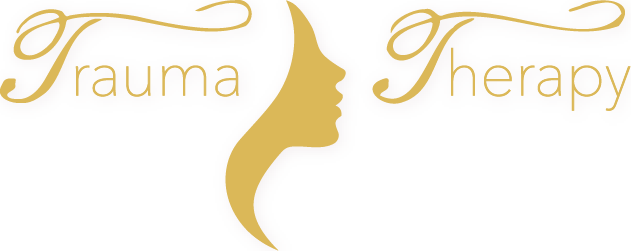What is Eye movement desensitization and reprocessing (EMDR)?
With EMDR I commonly treat:
- Complex post-traumatic stress disorder (C-PTSD)
- Post-traumatic stress disorder
- Depression
- Anxiety
Complex post-traumatic stress disorder TREATMENT
 C-PTSD comes as a result of multiple traumatic events occurring in combination with disrupted childhood attachment. C-PTSD plays out as severe challenges in connecting with others in a safe and healthy way, and is often paired with symptoms of depression and anxiety. People struggling with C-PTSD are often high-performing perfectionists, and are often emotionally distant and struggle to relate to others. EMDR is utilized to treat this by beginning with identifying and targeting the disrupted attachment(s) by asking the following questions:
C-PTSD comes as a result of multiple traumatic events occurring in combination with disrupted childhood attachment. C-PTSD plays out as severe challenges in connecting with others in a safe and healthy way, and is often paired with symptoms of depression and anxiety. People struggling with C-PTSD are often high-performing perfectionists, and are often emotionally distant and struggle to relate to others. EMDR is utilized to treat this by beginning with identifying and targeting the disrupted attachment(s) by asking the following questions:
- Who took care of you as a child? Were they able to be safe, helpful and protective of you? If not, what got in the way?
- How did your parents or caregivers respond to your needs? What did it mean to have needs?
- What did your parents or caregivers teach you about the world? Is it safe, or is it scary and unpredictable?
By examining these questions in depth, we will pinpoint specific memories related to barriers to secure attachment. We will then reprocess the first memory of that, the worst and then the most recent. If the disruption began before you can remember, we will utilize a preverbal trauma clearing protocol to move out bodily sensations and address unmet needs that occurred before your conscious memory started. Once disrupted attachment memories have been processed, we will move into later memories, usually in later childhood and adulthood, that continue to hold emotional bite.
![]()
Post-traumatic stress disorder TREATMENT
 PTSD comes as a result of experiencing one or more events that were overwhelming, terrifying, and outside the scope of your life schema. Symptoms of PTSD include avoidance of people, places or things that are reminders of the trauma, hyperarousal (jumpiness, extreme startle response, feeling on edge all the time), and intrusive thoughts (flashbacks, nightmares, finding yourself thinking about the trauma even when you don’t want to). PTSD impacts your daily functioning and it makes it hard to deal with life. Treating PTSD is what EMDR is known for. We will identify the specific events that are troubling you and process them. If there is a cluster of events or symptoms (for example, you have been in five car accidents in your life), we identify the first event, the worst event, and the most recent, and then process them in that order.
PTSD comes as a result of experiencing one or more events that were overwhelming, terrifying, and outside the scope of your life schema. Symptoms of PTSD include avoidance of people, places or things that are reminders of the trauma, hyperarousal (jumpiness, extreme startle response, feeling on edge all the time), and intrusive thoughts (flashbacks, nightmares, finding yourself thinking about the trauma even when you don’t want to). PTSD impacts your daily functioning and it makes it hard to deal with life. Treating PTSD is what EMDR is known for. We will identify the specific events that are troubling you and process them. If there is a cluster of events or symptoms (for example, you have been in five car accidents in your life), we identify the first event, the worst event, and the most recent, and then process them in that order.
![]()
Anxiety Disorder TREATMENT
 Anxiety is a fear-based. Fear that something terrible will happen, fear that people will laugh at you, fear that the dog will run away. When you experience anxiety, your amygdala, which is the teeny tiny part of your brain that is responsible for your fight, flight, and freeze response, runs amok and gets your body ready to do just that–fight the threat, run from the threat, or immobilize. You are unconsciously prepared to respond in these ways even when there is no threat present, causing you to feel tired, overwhelmed and on edge. In EMDR, we tackle anxiety in the same way that we tackle trauma. We find the original memory related to what you are feeling anxiety about and process it, then the worst experience of that anxiety, and finally the most recent. There might be more than one symptom or event cluster, and that is okay. We will tackle them all. Once past memories related to anxiety have been cleared out, we will look at current stressors causing anxiety and then look to the future.
Anxiety is a fear-based. Fear that something terrible will happen, fear that people will laugh at you, fear that the dog will run away. When you experience anxiety, your amygdala, which is the teeny tiny part of your brain that is responsible for your fight, flight, and freeze response, runs amok and gets your body ready to do just that–fight the threat, run from the threat, or immobilize. You are unconsciously prepared to respond in these ways even when there is no threat present, causing you to feel tired, overwhelmed and on edge. In EMDR, we tackle anxiety in the same way that we tackle trauma. We find the original memory related to what you are feeling anxiety about and process it, then the worst experience of that anxiety, and finally the most recent. There might be more than one symptom or event cluster, and that is okay. We will tackle them all. Once past memories related to anxiety have been cleared out, we will look at current stressors causing anxiety and then look to the future.
![]()
DepressiVE DISORDER TREATMENT
 Depression is challenging. It can be triggered by specific events, and there is also the organic component of predisposition that can make you more likely to struggle with it. Looking at it through the EMDR lens, we will explore the depressive episodes you have experienced in your life, processing the most recent episode first and then working backwards chronologically. We will also map out a timeline to identify periods of time in which things felt good (or at least less severe) and find the positive resources that were available to you in those times. We will capitalize on those resources and find ways to bring them into the present, even if it is merely capturing the lightness you felt in your heart. By working from the most recent episode backwards, you will be able to find some breathing room in your present state and also remember what it feels like to have a win.
Depression is challenging. It can be triggered by specific events, and there is also the organic component of predisposition that can make you more likely to struggle with it. Looking at it through the EMDR lens, we will explore the depressive episodes you have experienced in your life, processing the most recent episode first and then working backwards chronologically. We will also map out a timeline to identify periods of time in which things felt good (or at least less severe) and find the positive resources that were available to you in those times. We will capitalize on those resources and find ways to bring them into the present, even if it is merely capturing the lightness you felt in your heart. By working from the most recent episode backwards, you will be able to find some breathing room in your present state and also remember what it feels like to have a win.
![]()
Additional Areas of Expertise INCLUDE:
- Perinatal mood and anxiety disorders (PMADs)
- Informed Care: 911 Professionals
- Infertility or Adoption
- Perinatal trauma
Self-scheduling available: https://www.therapyportal.com/p/forward80020/
